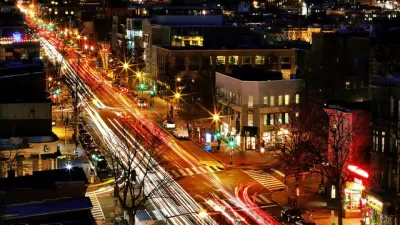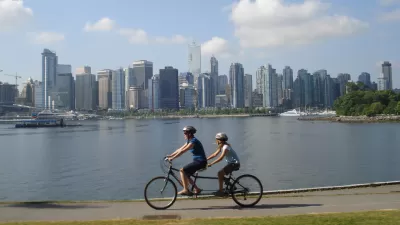Even with ambitious electric Vehicle adoption, the United States must reduce vehicle miles traveled by 20 percent before the end of the decade to limit warming to 1.5°C, according to new research by the Rocky Mountain Institute.

Brian Yudkin, Duncan Kay, Jane Marsh, and Jackson Tomchek writes for the Rocky Mountain Institute:
Beyond the climate consequences resulting from transportation emissions, this high baseline of driving has given rise to a range of societal ills in American cities. These include inequitable access to destinations, disconnected communities, and the nearly universal frustration of congestion. Our highway system has served to segregate populations, heightening long-standing injustices, while high costs of living and limited housing options continue to facilitate sprawl away from city centers.
RMI analysis indicates that the United States must reduce VMT by 20 percent before the end of the decade to limit warming to 1.5°C—and this remains true even under ambitious EV adoption scenarios.
The article continues to details some of the interventions that can reduce vehicle miles traveled (VMT), like pricing signals, ending highway expansions, and transportation demand management and provides an infographic to illustrate the effects of some of those interventions.
FULL STORY: Our Driving Habits Must Be Part of the Climate Conversation

Planetizen Federal Action Tracker
A weekly monitor of how Trump’s orders and actions are impacting planners and planning in America.

Restaurant Patios Were a Pandemic Win — Why Were They so Hard to Keep?
Social distancing requirements and changes in travel patterns prompted cities to pilot new uses for street and sidewalk space. Then it got complicated.

Map: Where Senate Republicans Want to Sell Your Public Lands
For public land advocates, the Senate Republicans’ proposal to sell millions of acres of public land in the West is “the biggest fight of their careers.”

Maui's Vacation Rental Debate Turns Ugly
Verbal attacks, misinformation campaigns and fistfights plague a high-stakes debate to convert thousands of vacation rentals into long-term housing.

San Francisco Suspends Traffic Calming Amidst Record Deaths
Citing “a challenging fiscal landscape,” the city will cease the program on the heels of 42 traffic deaths, including 24 pedestrians.

California Homeless Arrests, Citations Spike After Ruling
An investigation reveals that anti-homeless actions increased up to 500% after Grants Pass v. Johnson — even in cities claiming no policy change.
Urban Design for Planners 1: Software Tools
This six-course series explores essential urban design concepts using open source software and equips planners with the tools they need to participate fully in the urban design process.
Planning for Universal Design
Learn the tools for implementing Universal Design in planning regulations.
Heyer Gruel & Associates PA
JM Goldson LLC
Custer County Colorado
City of Camden Redevelopment Agency
City of Astoria
Transportation Research & Education Center (TREC) at Portland State University
Camden Redevelopment Agency
City of Claremont
Municipality of Princeton (NJ)





























